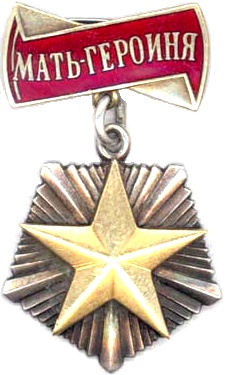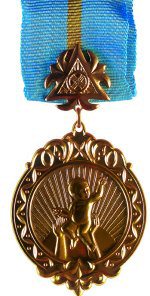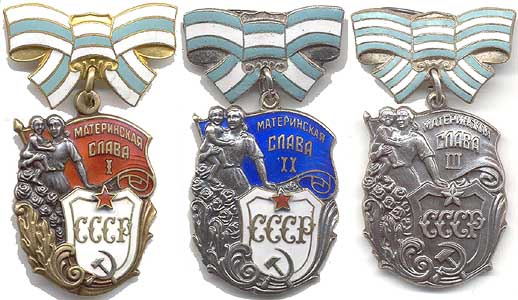Soviet men might have felt that all honors and awards were given to them and not to the women around them. So, with nothing else to think of, the Soviet Union introduced the title of Mother Heroine in 1944. It was not only approved by Stalin, but he actually invented it.

He believed that women who were taking care of families deserved a special reward for their labor of raising children and their dedication to it. So the “heroine mothers” were supposed not only to gain the title of the Order of Maternal Glory but also to receive financial incentives. The financial assistance included not only mothers of many children but also single mothers and pregnant women. The Soviet Union wanted healthy and happy children to fight for their country.
The Order of Maternal Glory was awarded on behalf of the Presidium of Supreme Soviet of the USSR through decrees of local Soviet presidencies. And although all women who had at least five children had the title “Mother Heroine”, there were different prizes depending on the number of children.

First, there was the Maternity Medal, awarded to women with at least five children or up to 9 children.
The Order of Maternal Glory was divided into three categories: Third Class, for mothers who gave birth to ten children; Second Class, for women who had at least 20 children; and First Class, for mothers with 30 children. Women who had that many offspring, regardless of whether they were their biological or adopted children, were qualified for the medal.

The prize was given on the first birthday of the last-born child if the other nine were still alive. Exceptions were made in cases where children had died under heroic, military, or other selfless circumstances. Occupational diseases were also counted.
The award meant other benefits as well. For example, privileges in terms of retirement pension, the payment of public utility charges, and the supply of food and other goods.
Approximately 430,000 women were awarded this title during its existence in the Soviet Union.